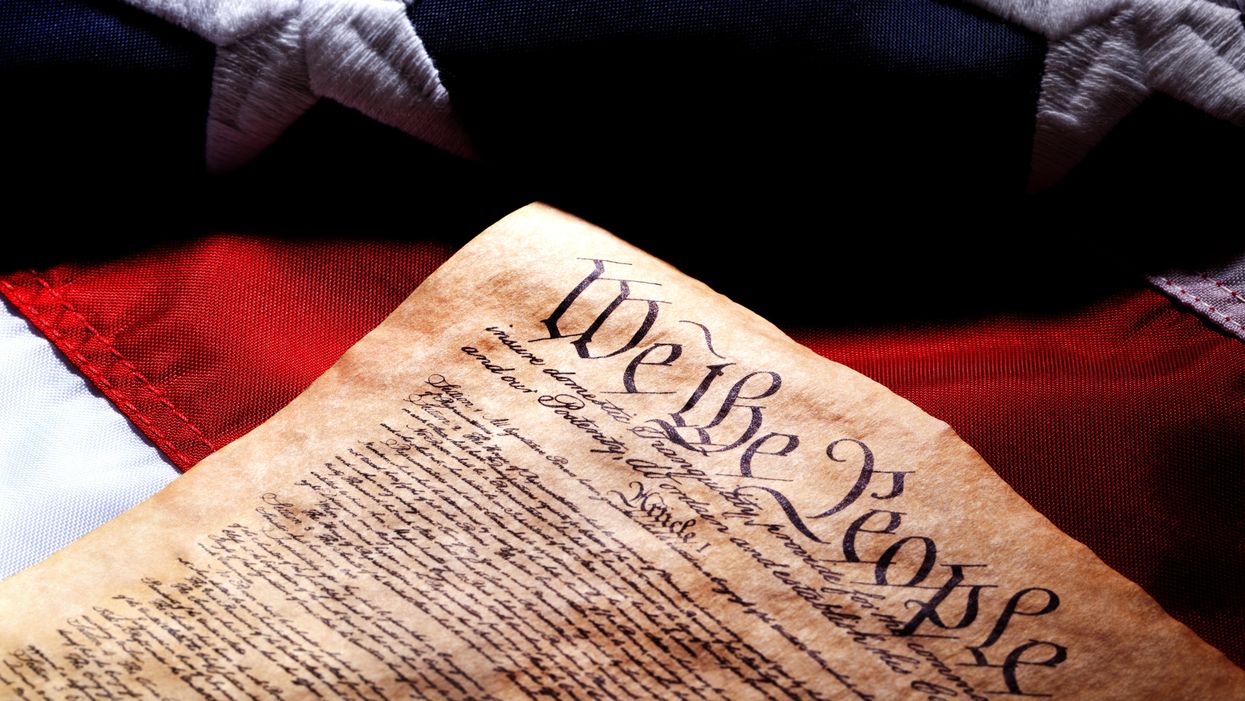Goldstone is a writer whose most recent book is "On Account of Race: The Supreme Court, White Supremacy, and the Ravaging of African American Voting Rights."
Much like an only child of parents in a divorce proceeding, the U.S. Constitution has been clutched at by both sides of the ideological divide, each of which insists that its claim is the more legitimate and the other’s distorts reality. The right is certain the Constitution protects “religious liberty,” “individual freedom” and the ability to own any variety of weaponry, while the left asserts that the document protects the right of women to have an abortion and ensures all Americans are allowed to vote, thereby preserving the Framers’ goal of majority rule.
Both sides are wrong.
The main issue is that neither the left nor the right understands what the delegates to the Constitutional Convention were trying to achieve in the summer of 1787 and the compromises and realpolitik necessary to leave Philadelphia with any product at all. The primary misconception is that the Framers were there to ensure “liberty,” be it personal, political or religious. Americans already had liberty under the Articles of Confederation — a good deal more liberty, in fact, than they would be granted under a new Constitution. Citizens of each state in this compact of “friendship” had almost total control over their own destiny, including defining a judiciary, legislature, executive and constabulary, as well as establishing a monetary system, rules for voting eligibility and bills of rights. Participation in the central government was just short of voluntary.
What the nation under the Articles lacked was an effective means of common defense, the ability to raise money, and the consistency of laws necessary to promote trade and commerce. In order to acquire these and create a functional nation, Americans needed to be willing to sacrifice individual liberty rather than gain it. The key question was how much and in what areas.
There were facets of “liberty” that could not be threatened — slavery in the South and the free flow of commerce in the North — and the delegates spent four contentious months trying to devise a plan for an effective central government that could also protect those interests. There were intense debates over what powers would be granted to a national legislature, and even fiercer disagreement on the executive, where it took almost 140 votes to settle on a single president who would serve for four years.
Small states feared a strong central government would ride roughshod over the liberties they enjoyed under the Articles, so their interests were protected with a two-senator plan and the Electoral College. Voting eligibility was not addressed, left for the states to decide as they pleased. Potential deal-breakers were avoided. In addition to dancing past the slavery question, aware of widespread objections to a federal judiciary, the delegates kept Article III short and vague, failing even to mandate the number of justices who would sit on the Supreme Court.
In the end, the delegates achieved what they had most sought: a national government far stronger than had existed under the Articles, a means for national defense, and some consistency in the manner in which states could conduct their affairs. But the price was high. Slavery was protected, functionality was limited and minority rule assured. It is no wonder then that the Constitution is inadequate to meet current challenges — it was inadequate to meet the challenges of 1787, which explains why a Civil War became necessary to resolve fundamental issues 75 years later.
Given its shortcomings, it would seem that Americans should attempt to redraft a more effective document, one in which areas of contention would be specifically addressed. For example, does the right to vote guarantee that the ability to vote be made equal for all citizens? Does the right to bear arms exist without regard to the requirement that a militia be present? Does the protection against illegal search and seizure protect a woman’s right to abort an unwanted fetus (“my body, my choice”)? Do religious beliefs allow some citizens to deny others services or legal protections? These and other issues are addressed either obliquely or not at all in our current Constitution, and the United States has been torn asunder as a result.
The problem is that the very contentiousness that has wrenched American society apart would become the focus of any new constitutional convention. In addition, how delegates would be selected for such a convention and whether states would be represented based on population or as separate entities and how many votes each would be granted to decide on specifics might scuttle any plan for a new constitution before it got off the ground.
Even assuming some formula for empaneling a convention could be found, how could a nation that has lived under minority rule for virtually all of its existence expect that ruling minority to voluntarily cede power? It is far more likely that any new plan would be far less effective at establishing majority rule than what we are living with today.
In the end, the very flaws that make the Constitution unworkable would render any attempt to update it unworkable as well. And so, if a new version is not a reasonable option, Americans will need to find a means to use the existing document to solve the very deep problems that currently plague the nation.
It will not be easy.




















